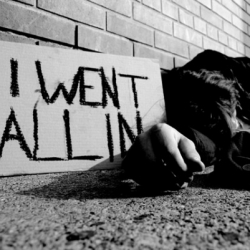
Underage Gamblers Prefer Scratch Cards, Poker, and Betting on Video Games
Youth gambling leads to a higher incidence of problem gambling, according to a professor of School & Applied Psychology and Psychiatry at the International Centre for Youth Gambling Problems and High Risk Behaviors at McGill University in Montreal, Canada. Youth psychology is combining with the prevalence of gaming opportunities and the advance of technology to create a growing problem.
Dr. Jeffrey L. Derevensky says 60% to 80% of youth age 9 to 18 have gambled during their lifetime. About 30% of youths in the same demographic are gambling on a weekly basis. In the United States, Dr. Derevensky estimates between 2% and 4% exhibit “gambling related problems”. The doctor says that males are much more likely to engage in betting than females.
The Difference in Youth Gambling
Youth gambling is often quite different than adult gaming. Younger gamblers often start with the lottery, and they prefer scratch cards to standard weekly drawings. They enjoy the instant payouts and the bright colors of the scratch cards. Once they use lottery gaming as a gateway, youths tend to graduate to card games–particularly poker. The prevalence of Texas hold’em on television and Facebook helps encourage gaming in the younger generation.
Often, underage gambling takes a much different form than casino trips and bingo nights. Kids will gamble on the outcome of Wii and XBox sessions. This actually makes technically qualifies as betting on a game of skill, but it still triggers the same brain chemistry that gambling on roulette or blackjack would.
Dr. Derevensky says gambling has become normalized in the 21st century society. Government operate state lotteries and allow interstate lottery associations. This makes gambling appear to be legal and “normal”, so it is not longer associated with vice and sin. Both children and adults see casino gambling in a positive light.
Thrills and Enjoyment
The doctor says children play for the enjoyment and excitement it brings. The ability to win money is a major enticement, especially if they do not understand the mathematics underpinning the games. Children have few ways to make money, so it is seen as a moneymaking venture by some.
Those who play poker and video games for cash might get a return on their gambling, especially because their games might involve one-sided competitions. Those who prefer lottery gaming and table games are not so fortunate.
Youth Psychology – Perceived Invincibility
Several studies over the past few years have suggested youth brain activity is different than adult brain activity, often up to the age of 25. Teenagers and young adults exhibit a belief in their own invincibility. This accounts for why younger people are not so risk-averse as wisened adults. Along with physical attributes and a willingness to take orders, the belief in one’s invincibility is also why young adults make the best soldiers.
When a younger person steps up to casino gambling, this belief can distort their perceptions of the odds and lead them to take risks well beyond their means. Especially for those with some success winning bets from their teenaged friends and acquaintances, many come to believe they’ll always win. When coupled with a lack of knowledge how the “distorted payout rates” of the house edge work, this can lead to bad decisions. Problem gambling is therefore a bigger risk in young adults than in older people.
Mobile Gaming Apps
Mobile gaming is a contributing factor to the issues youth gamblers have. Generation Z grew up not knowing a world without mobile phone technology. Millennials consider it odd to go anywhere or do anything without their Android smartphone, iPhone, or iPad tablet computer. Thus mobile online casinos and card rooms are quite appealing to these gamblers, because they can play anywhere and at any time.
The increasing proliferation of mobile gaming apps which allow Wi-Fi gambling is exacerbating the problem, says Dr. Derevensky. This is the major reason mobile casinos are predicted to drive the growth of the online gambling industry in the next few years. At a point, mobile casinos are expected to make more money than online casinos. This is due to the preference for mobile poker games and the like.
Youth psychology is converging with quicker, easier gameplay to make problem gambling worse. The next few years could see a marked rise in what the doctor called “distorted gambling”, because the new adults growing up right now combine traits that put them at worse risk than youths even 10 years ago.
